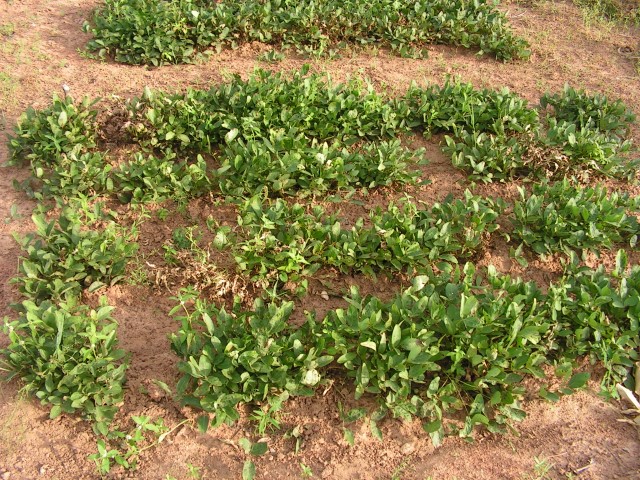
Bambara groundnuts
Lead Organization:
Bunda College (Malawi), IIAM (Mozambique), NRI (UK)
Partner Organizations:
National Plant Genetic Resources Centre, CICCOD, CLUSA, , KLUSA, ARI Naliendeli (Tanzania)
Community of Practice:
Countries:
Mozambique Tanzania Malawi
Duration:
8/2009—8/2010
Overview:
Bambara groundnut (Vigna subterranea) is a highly nutritious “orphan” legume crop grown on light soils of semi-arid zones in Southern Africa. It is usually grown on small plots as a supplement to diets that are primarily based on sorghum, millet, maize, cowpea and groundnut but where protein rich legumes are in short supply. Increased bambara production in these areas can contribute to dietary diversification.
The main thrust of this project is to facilitate increased bambara ground nut production through creating local, regional and international demand for bambara ground nut. Accessible market outlets might provide incentive for farmers to adopt improved seeds and invest more in the crop. Evidence collected during a CCRP funded bambara scoping study for Malawi, Mozambique and Tanzania shows that about 80% of the crop is produced for domestic consumption while the remaining 20% is sold. Value chain analysis in the three target countries and in the international market shows that there is currently more demand than supply for bambara locally, regionally and internationally. University, national program and NGO partners are undertaking a comprehensive program to select high yielding bambara cultivars as none are currently registered, pilot local seed supply and explore “best bet” production practices.
A major focus will be to understand how market demand can be stimulated to motivate farmers to plant more bambara. During this process the project is investigating the tradeoffs between home consumption to improve nutrition, and processing for local sales or trading grain. It will also explore what happens to women’s voice in this for a crop that has been their preserve. Working with NGO and local council staff, the project team will promote increased consumption, engaging community groups to focus on the value of bambara based foods for dietary diversification and nutrition for special interest groups (HIV, infants, school age children, pregnant women, elderly).
Grant Aims:
- Report on Bambara nut production and utilization in Mozambique, Malawi and Tanzania
- Catalogue of past and current research and development activities on Bambara nut in the region
- Enhanced access and use of Bambara nut germplasm by National Grain Legumes Breeding Programme and accessions characterized evaluated for producer preference and micronutrient variation determined
- Value chain analysis research method for three countries and potential export markets elucidated
- Human capacity development through MSc. training in Food Science and Nutrition achieved.
Outputs and Outcomes:
36 accessions of bambara (16 from Tanzania and 11 from Burkina Faso) have collected and maintained in Tanzania.Bambara on-station variety evaluations have been conducted in all the three countries and promising varieties based on yield and nutritional compositions have been identified.